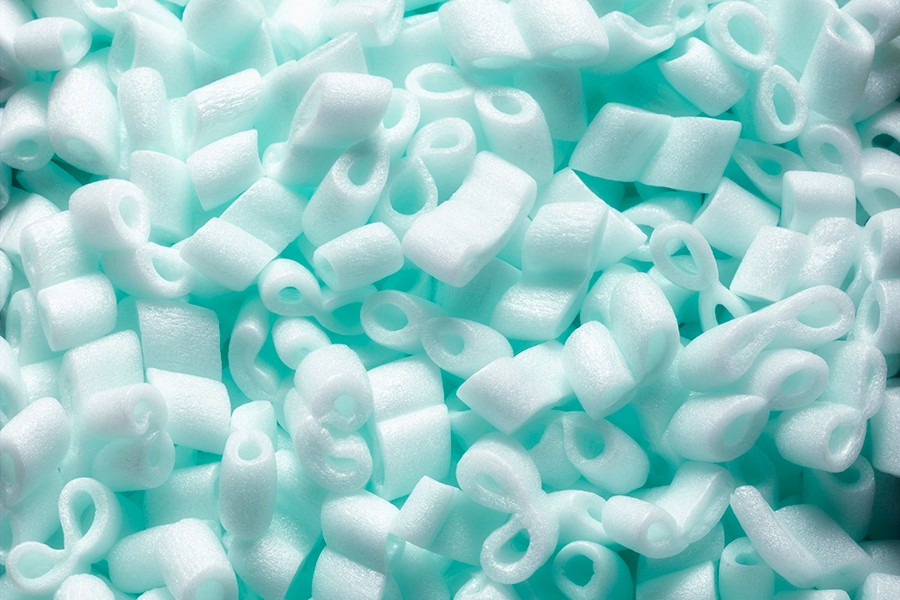Polystyrene foam, which is bulky and expensive to transport, is rarely recycled.
It can be found in everything from egg cartons, plates, cups, and packing peanuts to the coolers used to store lab samples.
The Office of Sustainability at Johns Hopkins University is teaming up with Homewood Recycling, the School of Medicine, and the Leadership Initiative for the Environment (LIFE) to get rid of stockpiled Styrofoam stored on JHU's campuses with a foam recycling drive today.
Recycling stations will be set up under the Krieger Hall breezeway from 10 a.m. to 2 p.m. and at the East Baltimore campus from 9 a.m to 5 p.m. to collect clean No. 6 Styrofoam.
The event is part of National Campus Sustainability Month, an effort by the Association for the Advancement of Sustainability in Higher Education to encourage universities to consider how to use less while doing more.
The alternative to recycling these products? The foam is burned in a nearby incinerator about three miles from campus, says Leana Houser, solid waste and recycling manager at Homewood. Recycling these products reduces the amount of raw material and petroleum needed to create more, she says.
There will also be a drop-off station at the event for e-waste, which includes batteries, cords, phones, computer monitors, keyboards, printer cartridges, and other electronics.
"Electronic waste, a lot of people don't think of that. Printer ink, old cell phones—all of that gets recycled, too," said Jess Carney, a sophomore majoring in Global Environmental Change and Sustainability. "It's not something you recycle every day, but it has a pretty big impact."
There is an ongoing electronics collection in the Homewood Recycling Office located in Wyman Building 3 as well as drop boxes in student housing. Departments can also put in a request for large pickups.
As an added incentive to participate in Campus Sustainability Month, anyone who recycles something at the drive or likes Homewood Recycling on Facebook or Instagram today will be entered to win a gift card for Daily Grind coffee.
Houser and Carney shared a few additional simple tips about how you can live less wastefully:
Get a reusable water bottle and carry it around
Shop in bulk
Order lab supplies from the supply store in Mudd Hall because they get large shipments and do not use individual packaging
Use a whiteboard for problem sets instead of a notebook
Unplug electronics that aren't being used
Take notes on a laptop, not in a paper notebook
These small actions are all part of a larger plan to make JHU's campuses more energy efficient and reduce the university's carbon footprint. In 2008, Johns Hopkins committed to reducing its carbon footprint by 51 percent by 2025.
Posted in University News, Student Life








